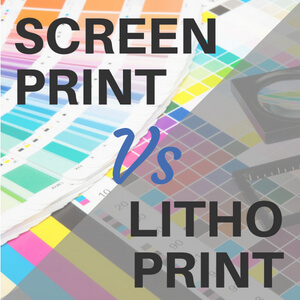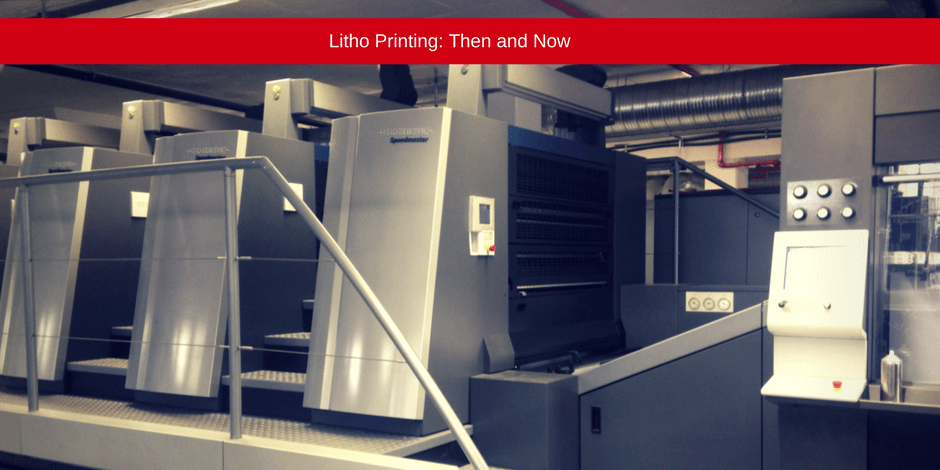litho printing vs Digital Printing: What to Understand
Wiki Article
A Comprehensive Guide to Recognizing Litho Printing Methods
The world of litho printing, a strategy originating from the late 18th century, is an interesting mix of history, art, science and advancement. Remain with us as we trip right into the exciting realm of litho printing.The Historical Development of Litho Printing
The historic trajectory of litho printing, a crucial innovation in the realm of interaction, is an exciting story of human ingenuity. Birthed in the late 18th century by Alois Senefelder, this technique was at first a cost-effective approach of publishing staged jobs. Lithography, derived from the Greek words for 'rock' and 'to create', utilized a smooth stone surface area to move photos onto paper. The procedure developed with the development of the rotating press, which greatly enhanced performance (litho printing). In the 20th century, the innovation of offset lithography revolutionized the industry, allowing for automation of high-grade prints. Each phase of litho printing's evolution showcases humankind's unrelenting search of performance and top quality in aesthetic interaction.Decoding the Scientific Research Behind Litho Printing Inks
Moving on in the expedition of litho printing strategies, the emphasis currently moves to the scientific research behind litho printing inks. The make-up of these inks, their drying procedure, and shade mixing techniques create the foundation of this complex art kind. Recognizing these aspects is vital to grasping the craft and achieving the desired print outcomes.Structure of Litho Inks
In lithographic printing, the fundamental duty of litho inks can not be overemphasized. The composition of litho inks differs depending upon its objective, yet typically, they include 2 primary elements - pigments and cars. Pigments, the color-providing elements, are carefully ground fragments suspended in the lorry, a liquid that carries the pigment onto the printing surface. The vehicle is an intricate combination of solvents, oils, and resins, which influence the ink's drying out time, adhesion, and gloss. Additionally, various ingredients are present to boost certain residential or commercial properties like circulation, drying, and resistance to environmental impacts. Each part plays a vital component in the final print's high quality, making the specific formula of litho inks an elaborate scientific research.Ink Drying Process
From the structure of litho inks, focus transforms to the fascinating process of ink drying. The drying process is crucial, as it affects the last print's top quality and longevity. Two main approaches are used in litho printing: oxidative drying out and absorption. Oxidative drying involves the ink reacting with oxygen airborne to create a tough, dry film. This technique offers a long lasting surface, however can be slower compared to absorption. Absorption, on the other hand, involves the ink seeping into the paper fibers, which is a faster process yet can lead to much less vibrant shades. The choice between these approaches is reliant upon variables such as print rate needs, the paper kind made use of, and the preferred surface.Color Mixing Strategies
While the drying procedure plays a key duty in litho printing, the science of shade mixing methods holds equivalent relevance. The science behind litho printing inks also takes right into account the openness of the ink, which affects how shades overlay and mix.The Art and Design Aspects in Litho Printing
Litho printing takes a breath life right into art and style with its distinct elements. Litho printing accommodates a variety of colors, enabling artists to develop dynamic and vibrant prints. This mix of accuracy and adaptability makes litho printing a recommended option for lots of artists and developers.Modern Applications of Litho Printing Methods
Litho printing techniques have actually discovered comprehensive use in the modern-day business sector. Its impact and significance remain to grow with the advent of new developments and technologies in the area. This section will discover these contemporary applications and the transformative duty they play in the printing sector.
Industrial Litho Printing Utilizes
In today's digital age, one might question the relevance of standard printing methods. Yet, litho printing continues to be a critical part of the business sector. High-volume printing tasks, such as the production of publications, papers, and packaging, depend on litho printing for its capacity to deliver exceptional picture top quality and cost efficiency. The procedure, which entails moving an inked picture from a plate onto a rubber covering and after that to the printing surface area, provides unequaled uniformity. This makes it optimal for tasks calling for a huge print run. Litho printing also offers a broad color spectrum, exceptional to that of electronic printing. This makes it the best selection for projects that demand vivid, high-grade color reproduction.Developments in Litho Printing
Pressing the boundaries of typical methods, modern-day developments have actually fueled a host of technologies in litho printing. One popular growth is digital litho printing, which incorporates the virtues of electronic technology with litho's high-grade result. These developments emphasize the enduring importance of litho printing in the contemporary globe.Exploring the Refine of Litho Printing: Detailed

Obstacles and Solutions in Contemporary Litho Printing

Regardless of the accuracy and practice that litho printing happily promotes, it is not without its collection of modern obstacles. Digital litho printing permits for cost-efficient brief runs and very easy personalization, addressing the concern of variable information. Hence, while there are obstacles, the litho printing sector is proactively adapting to fulfill them head-on, guaranteeing its relevance in the future.
Final thought
In final more thought, litho printing, with its rich history and scientific complexities, holds a substantial area in the print sector. As the overview exposes, it's a synthesis of art and innovation, with contemporary advancements ensuring its significance. The sector encounters obstacles that call find more information for ingenious services, with an emphasis on automation and sustainability. The future of litho printing depends upon its capacity to adjust to these altering demands, attesting its enduring value in a progressing market.
Report this wiki page